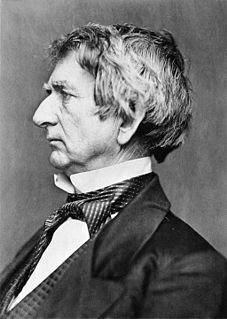A Quote by Alexander Hamilton
The complete independence of the courts of justice is peculiarly essential in a limited Constitution. By a limited Constitution, I understand one which contains certain specified exceptions to the legislative authority. Limitations of this kind can be preserved in practice no other way than through the medium of courts of justice, whose duty it must be to declare all acts contrary to the manifest tenor of the Constitution void. Without this, all the reservations of particular rights or privileges would amount to nothing.
Quote Topics
Acts
Amount
Authority
Certain
Complete
Constitution
Contains
Contrary
Courts
Declare
Duty
Essential
Exceptions
Independence
Justice
Kind
Legislative
Limitations
Limited
Manifest
Medium
Must
Nothing
Other
Particular
Practice
Preserved
Privileges
Reservations
Rights
Tenor
Than
Through
Understand
Void
Way
Which
Whose
Without
Would
Related Quotes
If, then, the courts of justice are to be considered as the bulwarks of a limited Constitution against legislative encroachments, this consideration will afford a strong argument for the permanent tenure of judicial offices, since nothing will contribute so much as this to that independent spirit in the judges which must be essential to the faithful performance of so arduous a duty.
[T]he bill exceeds the rightful authority to which governments are limited by the essential distinction between civil and religious functions, and violates in particular the article of the Constitution of the United States which declares that Congress shall make no law respecting a religious establishment.... This particular church, therefore, would so far be a religious establishment by law, a legal force and sanction being given to certain articles in its constitution and administration.
The states have authority to interpret the Constitution, enforce it, and protect the people from violations of it by the federal government In the first place, there is not a syllable in the plan under consideration which directly empowers the national courts to construe the laws according to the spirit of the Constitution, or which gives them any greater latitude in this respect than may be claimed by the courts of every State.
The constitution has divided the powers of government into three branches, Legislative, Executive and Judiciary, lodging each with a distinct magistracy. The Legislative it has given completely to the Senate and House of Representatives. It has declared that the Executive powers shall be vested in the President, submitting special articles of it to a negative by the Senate, and it has vested the Judiciary power in the courts of justice, with certain exceptions also in favor of the Senate.
[E]very act of a delegated authority, contrary to the tenor of the commission under which it is exercised, is void. No legislative act, therefore, contrary to the Constitution, can be valid. To deny this, would be to affirm, that the deputy is greater than his principal; that the servant is above his master; that the representatives of the people are superior to the people themselves; that men acting by virtue of powers, may do not only what their powers do not authorize, but what they forbid.
The interpretation of the laws is the proper and peculiar province of the courts. A constitution is, in fact, and must be regarded by the judges, as fundamental law. It therefore belongs to them to ascertain its meaning, as well as the meaning of any particular act proceeding from the legislative body. If there should happen to be an irreconcilable variance between the two, that which has the superior obligation and validity ought, of course, to be preferred; or, in other words, the Constitution ought to be preferred to the statute, the intention of the people to the intention of their agents.
If they are incorporated into the Constitution, independent tribunals of justice will consider themselves in a peculiar manner the guardians of those rights; they will be an impenetrable bulwark against every assumption of power in the legislative or executive; they will be naturally led to resist every encroachment upon rights expressly stipulated for in the Constitution by the declaration of rights.
The monument serves to remind the appellate courts and judges of the circuit and district courts of this state and members of the bar who appear before them as well as the people of Alabama who visit the Alabama Judicial Building of the truth stated in the preamble of the Alabama Constitution, that in order to establish justice we must invoke the favor and guidance of Almighty God.
The constitution regulates our stewardship; the constitution devotes the domain to union, to justice, to defense, to welfare, and to liberty. But there is a higher law than the constitution, which regulates our authority over the domain, and devotes it to the same noble purposes. The territory is a part, no inconsiderable part, of the common heritage of mankind, bestowed upon them by the Creator of the universe. We are his stewards, and must so discharge our trust as to secure in the highest attainable degree their happiness.




























